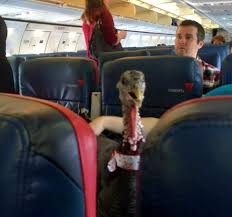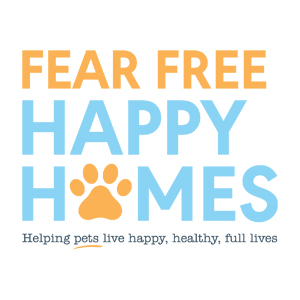Lucky Dog Lessons
Brandon McMillan, Lucky Dog
 He's the Emmy Award winning host of CBS's Lucky Dog and is back to teach us the basics: Sit, Stay, Down, Come, Off, Heel and No. Brandon McMillan will also clear up the confusion between the techniques taught by Cesar Millan and Victoria Stillwell.
He's the Emmy Award winning host of CBS's Lucky Dog and is back to teach us the basics: Sit, Stay, Down, Come, Off, Heel and No. Brandon McMillan will also clear up the confusion between the techniques taught by Cesar Millan and Victoria Stillwell.
The celebrity dog trainer and Emmy-winning star of the CBS show Lucky Dog shares his training system to transform any dog from - spoiled purebred puppy to shelter-shocked rescue - into a model companion in just seven days.
Brandon states that he is a firm believer in the saying, "Less is More," when it comes to dog training. In other words, he likes to enforce the basic commands that are very important for all dogs to learn. Tricks are fun, according to Brandon, but he also states that, "Tricks are for Kids!" and you really need to get the basics down before training your dog to do anything else.
When Brandon was approached to write his book, Lucky Dog Lessons, he wanted to make sure he wasn't repeating the same information that you can find in hundreds of dog training books already on the market. To do this, he went out and bought every top selling dog-training book from the last 15 years. This allowed him to do his research and know exactly what he wanted in his own book.
Lucky Dog Lessons begins with the basics-building trust, establishing focus and control, and mastering training techniques. From there, McMillan explains his playful, careful, and kind approach to training the 7 Common Commands he teaches every dog: Sit, Stay, Down, Come, Off, Heel and No. Next, McMillan provides solutions to common canine behavior problems, including house training issues, door dashing, chewing, barking and common mealtime misbehaviors. Lucky Dog Lessons includes easy-to-follow steps, illustrative examples, tried-and-true tips and tricks and photographs to demonstrate each technique.
Every command that Brandon teaches a dog can be done in 10 different ways, a sort of one size doesn't fit all. As a result, he knew you wouldn't find this information anywhere else. He also knew that the person buying his book wasn't going to be an advanced trainer. He wrote his book so even the most novice dog trainer, or even 12-year-old, could follow along and train their own dog.
 Lucky Dog Lessons is broken down into breeds, breed personalities and even the dog's own personal history of where they came from. For example, if you have a Beagle, it might be difficult to teach this dog to come. This dog is not like a German Shepherd or Border Collie, this is a dog that has a nose more powerful than most other dog breeds, which will make him want to follow scents and not pay attention. Brandon states that you need to take your dog's breed into consideration, and when you know all the fundamentals of that breed; go to the Chapter for "Coming" to find all the different ways to train the different dogs to come. He says one of them will work!
Lucky Dog Lessons is broken down into breeds, breed personalities and even the dog's own personal history of where they came from. For example, if you have a Beagle, it might be difficult to teach this dog to come. This dog is not like a German Shepherd or Border Collie, this is a dog that has a nose more powerful than most other dog breeds, which will make him want to follow scents and not pay attention. Brandon states that you need to take your dog's breed into consideration, and when you know all the fundamentals of that breed; go to the Chapter for "Coming" to find all the different ways to train the different dogs to come. He says one of them will work!
One big mistake that Brandon states most people make, and are not even aware of it until it is pointed out, is that they reward bad behavior. They might give treats to a dog to keep them quiet and to stop their barking. Think of it - treats to dogs are like currency to us. A dog needs to earn their treats. When you give a treat to them to stop their barking, they learn that if they keep barking, they will get even more treats.
There are many different dog-training techniques, from Cesar Millan's alpha dog training to Victoria Stilwell's positive rewards methods. Brandon states that technically these both work, but he choses to take the middle of the road between these two. He said it all depends on your dog and also the issues. For example, if a dog is fighting, you don't keep rewarding him for fighting. This dog will need a little more of a firm discipline type of training, but be careful not to go too far or you could make the situation worse. However, Brandon has never seen a purely positive approach with a highly aggressive type of dog ever work in the history of dog training.
In most cases, Brandon states, you need to find the middle ground and that is what his training is all about. Brandon states he is always fair when training a dog and makes sure he never pushes past the limit of what he feels the dog is comfortable with. He has his own style!
Brandon believes that no dog is beyond saving, and the loving, positive, successful methods he offers will work wonders with even the most challenging dog. Create the happy pet family you want with Lucky Dog Lessons.
Visit Website
Yes, You Can Train A Cat!
Pam Johnson-Bennett, CatWise
 Cat Psychologist Pam Johnson-Bennett is back with tips on training the feline persuasion. She'll also explain why cats gravitate toward cat-haters and those that are allergic to them. Pam will also enlighten us to why cats must sit on your homework or computer keypad.
Cat Psychologist Pam Johnson-Bennett is back with tips on training the feline persuasion. She'll also explain why cats gravitate toward cat-haters and those that are allergic to them. Pam will also enlighten us to why cats must sit on your homework or computer keypad.
Pam Johnson-Bennett is the foremost expert on cat psychology and returns to Animal Radio to discuss her brand new book, CatWise, the answers to your cat's seemingly inexplicable habits and sudden shifts of mood. Pam states she still keeps trying to get people to get a littler smarter about their cats.
When asked if you really can train a cat, Pam states that, "I think they're easier than dogs to train." This is because cats are food motivated. They are hunters. By using food, it is a built-in tool for you to use. This makes them easy to train and they are smart.
However, the thing with cats is that you have to give them a choice. Most of the time we force animals to do things and you can't win by forcing and by using fear. You have to give cats a choice and give them a roadmap to success.
So why do cats always seem to go to people who don't like cats or are allergic? Pam sates it is common sense when you think about it. Cats are territorial and our house is their territory. When someone enters their territory, they need time to figure out if it is friend or foe. A lot of times cat lovers don't give them a chance. They just charge right over to the cat and try to pet them and the cat hasn't had time to go, "Hey wait a minute, you don't smell like anyone else that I know in this house." However, the person who doesn't like cats and tries to avoid them doesn't make eye contact and doesn't make any overtures to the cat. This gives the cat the opportunity to go up to them and do a scent investigation. Cats are all about scent.
You should always let a cat come up to you in these situations. It is all about choice, and that applies to anything when it comes to cats. The more choices you give a cat, the less behavior problems you will have.
 Pam answers the question as why your cat who wouldn't give you the time of day earlier, all of a sudden sits on your keyboard when you are working. Pam states that they are smart and they know what they're doing! They do this because that is where your focus is and that's where they want to be. You are a captive audience, whether you are working on a computer or reading a newspaper. Other times you may be talking on the phone and your cat doesn't see anyone else in the room, so they think you are talking to them.
Pam answers the question as why your cat who wouldn't give you the time of day earlier, all of a sudden sits on your keyboard when you are working. Pam states that they are smart and they know what they're doing! They do this because that is where your focus is and that's where they want to be. You are a captive audience, whether you are working on a computer or reading a newspaper. Other times you may be talking on the phone and your cat doesn't see anyone else in the room, so they think you are talking to them.
So if cats are so smart, why do they go outside their litter boxes? Pam states that it is 90-percent elimination problems and only about 10-percent behavioral problems. This missed box episodes could because a new cat was introduced into the family improperly, there was a move to a new house, or the cat was punished. It could also be because the litter box was dirty or they may have underlying medial issues. Many times it is because there is something else going on. You need to look beyond the box to figure out what is going on with your cat.
Pam states there are three step you need to do if your cat stops using the box. First, you should take them to the veterinarian to rule out any medical issues. Even if you are sure it's behavioral (and no - cats don't do this to get back at us!), do not skip this step. Next, look at he litter box itself. Is it clean? If your cat is now an adult, is it big enough for them? Did you move the box in a less desirable location? And lastly, what is happening with the dynamics in the household? Have you added another cat? Has your house become chaotic? Did you move? Did something traumatic happen to the cat? You need to look at these three things in this order.
Other things you will find in her book are:
What should we do the first night we bring our new cat home?
Why does my cat lick my hair?
How do I train a cat to use their litter box?
How do I prepare a cat for the arrival of a new baby?
What's the best way to introduce dogs and cats?
Pam's thirty years of observing and advising are finally recorded in one volume that spans litter boxes to cat trees, declawing to sock-chewing.
Visit Website
Hottest Pet Costumes For 2016
MaDonna Sheehy, HalloweenCostumes.com
 Madonna Sheehy from HalloweenCostumes.com has the list of top pet costumes for your furry-companion. She even has matching human/pet costumes. Will you be a part of the 16-percent that dresses our pets up for Halloween? Madonna will also give away two costumes of your choice.
Madonna Sheehy from HalloweenCostumes.com has the list of top pet costumes for your furry-companion. She even has matching human/pet costumes. Will you be a part of the 16-percent that dresses our pets up for Halloween? Madonna will also give away two costumes of your choice.
MaDonna Sheehy is the Lead Brand Specialist at Fun.com, the parent company for HalloowenCostumes.com. You can imagine, between human and pet costumes, they are pretty busy at this time of year.
Statistics state that only 16-percent of Americans dress up their pets for Halloween. MaDonna is surprised by that figure and believes it is because some people dress their pets up year round, which might skew the numbers. She doesn't think it takes into account the people like her, who torture their pets with clothing in the non-October months as well.
This year, MaDonna states they have noticed that people are buying other animal costumes for their dogs. One of the most popular is the lion mane and also a spider costume. Some of her favorites are food items, with the taco still being a top seller.
 What about gender specific costumes? Some costume makers label their costumes for either male dogs, like constructions workers or firefighters and for the female dog, French maid or nurse, which sends a message that there are certain jobs for men and women. MaDonna states that their costumes are not labeled for either the male or female dog.
What about gender specific costumes? Some costume makers label their costumes for either male dogs, like constructions workers or firefighters and for the female dog, French maid or nurse, which sends a message that there are certain jobs for men and women. MaDonna states that their costumes are not labeled for either the male or female dog.
MaDonna feels that if you want to dress up your female dog as Superman it is not a problem!
Because they sell costumes for both humans and people, they are also seeing a lot of people buying matching outfits with their pet or whole families dressing up with a theme. One example is Star Wars, where dad is Han Solo and mom is Prince Leia, with the dog being Yoda.
What costumes will you and your dog be wearing this year?
Visit Website
 Second Hand Smoke Sickens Pets - Dr. Debbie
Second Hand Smoke Sickens Pets - Dr. Debbie
Looking to save money on veterinary care or wondering how to keep your pet in peak health? If you are a smoker and have pets, there are some very compelling reasons to quit - second hand smoking's link to causing cancer and illness in pets. If threats from your spouse haven't gotten you to stop smoking yet, maybe looking at that furry friend on the couch next to you will. The life you save may be his.
It's long been known that smoking causes serious health repercussions in people, even to non-smokers in the same environment. According to the Center For Disease Control (CDC), secondhand smoke contains 7,000 different toxins, hundreds which are toxic and 70 which cancer-causing.
In people, secondhand smoke is linked to cardiovascular disease, lung cancer and childhood asthma, ear infections and Sudden Infant Death Syndrome (SIDS). Similar research in pets has found that animals from smoking homes are at greater risk of chronic lung disease like asthma and bronchitis, respiratory cancers and other cancers.
Pets are exposed to smoke and chemicals not only through inhaling air, but also by ingesting the toxins directly. Smoke particulates settle on pet's fur or are transferred from the owner's hands through petting. Pets then ingest cigarette's toxins through licking humans, self-grooming and grooming other household pets. Cat's especially fastidious nature permits increased intake of smoke residues through kitty grooming behaviors.
What Are Secondhand Smoke Effects In Pets?
Research from Tufts University discovered that cats exposed to smoking had a higher risk of developing the malignant cancer, lymphoma. In fact, cats living in smoking homes had double the risk of developing lymphoma as cats from non-smoking homes. When two people in the home smoked, the risk of lymphoma in cats increased to four times.
 Other veterinary research identified increased rates of oral, nasal and lung cancer in pets from smoking households. Cats from a smoker's home are four times as likely to develop the disfiguring cancer, squamous cell carcinoma. And in yet another study, long snouted dog breeds from smoking homes were at greater risk of developing nasal cancer, likely due to greater absorption area in long nasal passages.
Other veterinary research identified increased rates of oral, nasal and lung cancer in pets from smoking households. Cats from a smoker's home are four times as likely to develop the disfiguring cancer, squamous cell carcinoma. And in yet another study, long snouted dog breeds from smoking homes were at greater risk of developing nasal cancer, likely due to greater absorption area in long nasal passages.
How Can You Safeguard Your Pet's Health?
If you are a smoker, consider stopping - for your sake and your pets. Short of giving up the habit, take steps to minimize second hand smoke on your pets. Only smoke outdoors, away from pets. Wash your hands after smoking, before handling your pets. If you enjoy lighting up in the car when driving, leave your pet at home. Even with car windows down, cigarette smoke inside a car creates a toxic environment for pets.
Have your dog and cat examined by your veterinarian every six months. Alert your veterinarian to any lethargy, trouble breathing, and coughing or unexplained weight loss. Early detection and treatment permits the most effective treatment of chronic respiratory conditions and cancers. Your pet's veterinarian can detect illness through regular exams and preventative screenings.
While smoking isn't the only factor causing cancer in pets, it is increasingly scrutinized as a significant health risk, one that we humans can control. The health decisions we make not only influence our children's health, but also affect those devoted pets that warm our hearts and beds.
Featured veterinarian known as "Dr. Debbie" on national pet radio program, Animal Radio. Ebook author of "Yorkshire Terriers: How to Be Your Dog's Best Friend"; "Pugs: How to Be Your Dog's Best Friend"; "Mini Schnauzers: How to Be Your Dog's Best Friend"; and "Shih Tzu: How to Be Your Dog's Best Friend."
Visit Website
Lucy Pet Foundation
The Mission of The Lucy Pet Foundation is to reduce pet overpopulation and the euthanasia of over 80,000 cats and dogs per week in the United States by having mobile spay/neuter clinics across the country and to support causes that benefit animal welfare. The Lucy Pet Foundation currently has two buses that travel around Southern California focusing on spaying and neutering. These buses are state of the art surgery units. Their next focus is in generating more funds to expand the work of these buses and have more across the country.
 The Lucy Pet Foundation not only offers free and reduced spays and neuters, they also do microchipping, vaccines and de-wormings. Spaying and neutering is not only great for pet population control, but it has been proven that an animal will live on an average of 40-percent longer after having this surgery.
The Lucy Pet Foundation not only offers free and reduced spays and neuters, they also do microchipping, vaccines and de-wormings. Spaying and neutering is not only great for pet population control, but it has been proven that an animal will live on an average of 40-percent longer after having this surgery.
Upcoming Clinics
Free Spay & Neuter for Los Angeles City Residents! Here is a list of upcoming free or reduced fee mobile spay and neuter clinics in California:
October 15: Superior Store, 133 West Avenue 45, Los Angeles, CA Spay/Neuter APPOINTMENT ONLY; Vaccine Clinic 10:00am-2:00pm
October 17: Superior Store, 9801 Laurel Canyon Blvd., Pacoima, CA Spay/Neuter APPOINTMENT ONLY; Vaccine Clinic 10:00am-2:00pm
October 19: Superior Store, 3480 S. La Brea, Los Angeles, CA Spay/Neuter APPOINTMENT ONLY; Vaccine Clinic 10:00am-2:00pm
October 20: Veterans Stand Down, Welcome Center Bldg. 257, West LA Medical Ctr., 11301 Wilshire Blvd., Los Angeles, CA Spay/Neuter APPOINTMENT ONLY
October 22: Superior Store, 10211 Avalon Blvd., Los Angeles, CA Spay/Neuter APPOINTMENT ONLY; Vaccine Clinic 10:00am-2:00pm
October 24: East Valley Shelter, 14409 Vanowen St., Van Nuys, CA Spay/Neuter APPOINTMENT ONLY; Vaccine Clinic 10:00am-2:00pm
October 25: West Valley Shelter, 20655 Plummer Street, Chatsworth, CA Spay/Neuter APPOINTMENT ONLY; Vaccine Clinic 10:00am-2:00pm
October 27: Food 4 Less, 5100 N. Figueroa St., Los Angeles, CA Spay/Neuter APPOINTMENT ONLY; Vaccine Clinic 10:00am-2:00pm
October 28: Vallarta Supermarket, 19725 Vanowen St., Winnetka, CA Spay/Neuter APPOINTMENT ONLY; Vaccine Clinic 10:00am-2:00pm
 County and City Vouchers accepted. But remember, you must get on a list to have your pet seen at these locations. Please call The Lucy Pet Foundation toll free at 1-855-499-5829 or Visit Website to schedule an appointment, or register at the events.
County and City Vouchers accepted. But remember, you must get on a list to have your pet seen at these locations. Please call The Lucy Pet Foundation toll free at 1-855-499-5829 or Visit Website to schedule an appointment, or register at the events.
Lucy Pet Products, Inc. is a family owned and operated company based in Thousand Oaks, California. Lucy Pet Products are "Products With a Cause." Part of the proceeds from the sales of Lucy Pet Products are used to help fund The Lucy Pet Foundation. Their products can be found in pet specialty stores across the USA and are exported worldwide, or Visit Website.
Visit Website
5 Reasons Every Day Is Halloween In The Pet World
Robert Semrow, Animal Radio Listomania
 So you may think Halloween is one day a year and I will agree that's true on the calendar. However, I have been pondering this notion for a while. So, as I explored it more, I have now concluded and am ready to declare this here on Animal Radio - Everyday is Halloween for the Pet World.
So you may think Halloween is one day a year and I will agree that's true on the calendar. However, I have been pondering this notion for a while. So, as I explored it more, I have now concluded and am ready to declare this here on Animal Radio - Everyday is Halloween for the Pet World.
Think about it. What is Halloween known for? Treats, dressing up, walking the neighborhood and seeing friends and greeting them with a huge smile of internal warmth. On top of that, the kids in our lives can't wait to get out and walk the neighborhood instead of sitting in front of a TV or computer and Zombiefying themselves.
Well, that's how most days go for those with pets. Our furkids are dressed up each day, ready to get out of the house on a walk and they can't wait to see the neighbors.
Follow me on this.
Each morning, regardless of whether you have a dog, cat, bird or other pet you wake up to an energized being ready to get moving. They have more enthusiasm than you and can't wait to get started. Dogs in particular are at the front door asking, begging and even demanding that we get going on a walk around the neighborhood. Dogs stop at most of the houses to sniff the scented treats have been left behind by other dogs. They let each other know where the good houses are and which houses to skip. That's the kind of teamwork and camaraderie that all kids have on Halloween. Which house is giving out the good candy and which house is giving out boxed of raisins. Yuck, I'm still haunted by boxes of raisins from my children.
 Next, is the dressing up. That's right, for many it's a chance to be something different, whimsical, scary or just simply fun. The same holds true in the pet world. Yes, there are outfits, costumes, blingy collars, pet paints and much more that are more common than ever. And just like children, some pets love this activity of getting dressed up to see their adoring public and shine like the stars they are. One more similarity is that while many children are pushed around the neighborhood in strollers to trick or treat, so too are many dogs and cats. It's not a rarity anymore and I predict that pets being pushed around in strollers may become an epidemic within the next 100 years.
Next, is the dressing up. That's right, for many it's a chance to be something different, whimsical, scary or just simply fun. The same holds true in the pet world. Yes, there are outfits, costumes, blingy collars, pet paints and much more that are more common than ever. And just like children, some pets love this activity of getting dressed up to see their adoring public and shine like the stars they are. One more similarity is that while many children are pushed around the neighborhood in strollers to trick or treat, so too are many dogs and cats. It's not a rarity anymore and I predict that pets being pushed around in strollers may become an epidemic within the next 100 years.
Halloween is all about the treats and so too are the pets in our lives. Each day is filled with a quick stop off at my desk, at the table, on the sofa - it's like Halloween. We know exactly what our pets are saying "Licks for treats," which is best translated as, "I'm going to give you kisses and loves because I know that ends with a tasty treat or two. If not now, the next time you go in to that kitchen area."
All kidding aside, Halloween really is every day for anyone with pets and we receive treats galore without the cavities. Share your everyday is Halloween thoughts on our Animal Radio Facebook Page.
Visit Website
Pet Adoption Tour
Susan Sims, 8th Annual Fido Friendly Get Your Licks On Route 66
 Every year Susan Sims of Fido Friendly Magazine and her husband trek across the country on Route 66 along with their two Directors of Barketing, dogs Junior and Jake. Their mission is to adopt as many animals as possible along the way, as well as collect donations for the local shelters.
Every year Susan Sims of Fido Friendly Magazine and her husband trek across the country on Route 66 along with their two Directors of Barketing, dogs Junior and Jake. Their mission is to adopt as many animals as possible along the way, as well as collect donations for the local shelters.
Today they are at PAWS No-Kill Shelter in Chicago from Noon to Four. Susan states this is something you need to pay attention to when you are looking to adopt. Most people will stay away from no-kill shelters, because they feel these animals will be okay, and choose to instead adopt from a high-kill shelter for a dog that might not have a long time. But Susan tells us that it takes a lot of money to be a no-kill shelter and they can use your support.
Tomorrow, Susan and her gang will be at the Animal Protection League in Springfield, Illinois. The following weekend they will be at Wayside Waifs in Kansas City, Missouri and the Great Plains SPCA in Meriam, Kansas.
Sprinter Rentals is once again providing them with a Sprinter to travel down America's Favorite Highway and Animal Radio is their media sponsor for the eighth year!
Thanks to their many sponsors who have signed up to help them save lives, one shelter at a time! Please visit their websites to see the great products they have to offer: Sprinter Rentals, TurfMutt, Evercare, John Paul Pet, WellPet, Zeus Dog Toys, Petcurean, Tito's Handmade Vodka, Vet's Best and Petmate.
Remaining Tour Schedule:
October 15: Wayside Waifs, Kansas City, MO 2-6
October 16: Great Plains SPCA, Merriam, KS Noon-4
Even if you are not planning on adopting an animal, come out for the fun and support the shelters by spinning the wheel for prizes!
Visit Website
Tails Inc. Pet National Events for October 2016
Janice Gork, Tails Pet Media Group, Inc.
 Passionate about rescue and adoption, Tails Pet Media Group, Inc. was founded in 2000 by Janice Brown. What started as a magazine, is now a mission! Tailsinc.com is an interactive website and online community committed to connecting the animal welfare community with the general pet-loving population. Tails Inc. features expert knowledge, advice, pet product reviews, local resource guides, community event news and monthly contests, in order to promote and encourage people to live responsibly with their pets.
Passionate about rescue and adoption, Tails Pet Media Group, Inc. was founded in 2000 by Janice Brown. What started as a magazine, is now a mission! Tailsinc.com is an interactive website and online community committed to connecting the animal welfare community with the general pet-loving population. Tails Inc. features expert knowledge, advice, pet product reviews, local resource guides, community event news and monthly contests, in order to promote and encourage people to live responsibly with their pets.
Here is a list of upcoming October Events around the Country:
WHAT: 13th annual Red Dog RACERS Charity Auction & Cruise-in Fund Raiser - wide variety of cars and races. Bring your own wheels, too! Silent auction, live auction,
WHO: (SICSA) Society for the Improvement of Conditions for Stray Animals - Spay Neuter Programs
WHEN: October 15, 10am -3:30pm
WHERE: Cold Beer & Cheeseburgers - Breitenstrader Shopping Center, 1060 Patterson Rd, Dayton, OH
COST: Free
Send Email
WHAT: Dog Film Festival - Following an 11-city tour, it returns to New York City during Adopt a Shelter Dog Month - Each screening includes documentary, animated and live-action shorts submitted by dog-loving filmmakers from around the world.
WHO: fundraiser for Mayor's Alliance for NYC's Animals
WHEN: October 15, 11am-10pm
WHERE: Symphony Space, 2537 Broadway, New York City
COST: $15.00 for adults and $10.00 for children per screening
Visit Website
Want to list your event for free? Click here. Please note that non-profit events (fundraisers, adoption events, etc.) will be listed for free and for-profit events will incur a fee. Please email the advertising team if you wish to advertise your for-profit event in their directory.
Tails has local focus, but national reach - with magazines in 10 different cities across the United States, and 150,000 issues printed per month, 12 times a year, and an ever-increasing audience of over 1 million people. Pet lovers can pick up their free magazine at pet-related businesses and vet offices, grocery stores, health clubs, bookstores, coffee shops, restaurants, libraries, park districts, and other "mainstream" locations. Currently they are in over 10,000 individual locations.
To find out where you can get a copy of your own, send an email to locations.
Visit Website
 Animal Radio News - Lori Brooks
Animal Radio News - Lori Brooks
Dog Aging Project
As pet owners, we have all dealt with the depression and sadness of watching our furry companion age and slow down then had to say goodbye much sooner than we would like. For one certain biologist, the dog aging process doesn't make sense because in the animal world, larger animals live longer than smaller ones. Tigers outlive domesticated house cats. Orcas outlive dolphins. Humans outlive chimpanzees. However, within the dog species, the opposite is true. A tiny Chihuahua can live up to 18 years while a huge Newfoundland lives about 10 years. Now, biologist Daniel Promislow has started the Dog Aging Project at the University of Washington. They are currently working on getting a grant that would allow them to conduct an enormous study on dog aging involving 10,000 dogs from across America. Dogs are the most phenotypically variable species in the world according to Promislow. Just go to the dog park, and you see that variability in terms of size, shape, color, coat and behavior. The Project is now recruiting dogs of all kinds, large and small, purebreds and mixed breeds, young and old. They are also interested in dogs from geographically diverse parts of the country and from households of different socioeconomic backgrounds. There are several easy metrics for measuring aging in humans. For example, you can measure human frailty, by seeing how quickly a person can get out of a chair in a standardized test. But there's no such chair test for dogs, which makes it hard to evaluate how well or poorly a dog is aging. The project is also testing whether a drug called Rapamycin can help dogs age better by protecting their cardiovascular health, but that is a separate study. To learn more, Visit Website.
 Is Your Dog's Halloween Costume Sexist?
Is Your Dog's Halloween Costume Sexist?
Young girls may be discarding their princess wands for superhero capes this Halloween, but not so in the canine world. The glass ceiling appears to be firmly in place at PetSmart, where career costumes labeled "male" include firefighter and police officer, while "female" dogs can choose between a pink cowgirl costume or ballerina. To be fair, a number of other costumes ranging from lobsters to pumpkins and dinosaurs bear the "male or female" label. Scott Lawrie hosts a pod cast on gender issues and says, "It seems silly on the surface, but this is part of a larger message we're sending, that there are certain jobs for men and certain jobs for women." Lawrie, who plans to dress his two dogs as the cop duo Cagney and Lacey, says he did a double-take when he saw PetSmart's police officer costumes marked for "males." He clicked around and noticed a pattern: career-related costumes were often explicitly marked "male" and "female," and they were constructed exactly the same. And of course, there's another sexist angle to this. Last year, the New York City Department of Consumer Affairs found that items marketed to girls and women are routinely marked up an average 7-percent compared to items for boys and men. And, it turns out those mark ups aren't limited to humans, either. At Party City, SuperGirl and Wonder Woman doggie costumes were priced 30-percent higher than Superman costumes ($16.99 versus $12.99). Batgirl costumes, meanwhile, were selling for $19.99, a 33-percent premium on Batman's $14.99 price tag. Pet costumes have been gaining popularity in recent years, with 16-percent of Americans saying they'll dress up their dogs, cats and bunnies for Halloween this year, according to the National Retail Federation. The most popular costumes for pets were gender-neutral pumpkins, hot dogs and bumblebees.
 What Types of Support Animals Should Be Allowed on Planes?
What Types of Support Animals Should Be Allowed on Planes?
Turkeys, pigs and even roosters have flown the friendly skies, carried onto commercial planes by passengers who identified their furry and feathered friends as emotional support animals. But a committee of airline representatives and disabled rights advocates continues meetings in Washington, D.C. to come up with new rules on what type of animals should be permitted on planes and what documents should be required to prove the animals are legitimately needed. Airlines recognize two types of animals that can accompany passengers free of charge: service animals, such as seeing-eye dogs and emotional support animals, which help comfort travelers with psychological or emotional conditions. The debate among members of the Accessible Air Transportation Advisory Committee focuses on what type of animals can be recognized as emotional support animals. The National Multiple Sclerosis Society, among others, suggests limiting emotional support animals to dogs, cats and rabbits, while other organizations, including the Autistic Self Advocacy Network, would like to add birds to that list (but not chickens, ducks or turkeys). Airlines say too many passengers falsely claim that their pets are emotional support animals. The carriers want to recognize only dogs and miniature horses as service animals and require that all animals be kept in pet carriers during the flight.
 Richest Dog Owns 8 New iPhone 7's
Richest Dog Owns 8 New iPhone 7's
Alaskan Malamute KeKe, who is known as China's richest dog, is the apparent owner of eight brand new iPhone 7's. Why? We don't know, but maybe because 7 aren't enough if you're the richest dog in China. KeKe, who is a social media sensation, belongs to the son of one of China's most powerful property moguls and has over a million online followers plus his own personal blog on China's biggest social network site, which has more than 500 million active users. The 28-year-old billionaire has previously posted photos of KeKe wearing pure gold Apple Watches worth more than $33,000. Yes, those pictures sparked some anger. However, it's not the dog's fault. His grandfather is the chairman of China's largest commercial property company and worth nearly 29 BILLION dollars, which puts grandpa among the 20 richest people on the planet, according to Forbes.
 You Can Now Break A Window If You See A Dog In A Hot Car
You Can Now Break A Window If You See A Dog In A Hot Car
Californians who see an animal trapped in a hot car can now, without fear of being sued, break a window to set them free without fear of prosecution under a new bill that has been signed into law. Rescuers can break into the car as long as there is no other way to free the animal and it appears to be in danger, the car is locked and law enforcement is not arriving quickly enough. However, the rescuer must stay at the scene until law enforcement arrives.
We Take Better Care of Our Pets When We Know How Good They Are For Us
HABRI, the Human Animal Bond Research Initiative, has announced that for the first time they have data to show that when we know how good pets are for us, we are more likely to take better care of them. In their latest survey, when pet owners were asked how knowledge of scientific research on the human-animal bond affected their actions, the responses were:
89-percent of pet owners said they were more likely to take better care of their pets
75-percent said they were more likely to microchip a pet
62-percent said they were less likely to skip vet visits
74-percent said they were less likely to give up a pet for any reason
88-percent said they were more likely to provide their pets with high-quality nutrition
The survey also asked pet owners about increased support for pet ownership in society:
84-percent agree health and life insurance companies should give discounts for owing a pet
87-percent would be more likely to buy products from pet-friendly businesses
88-percent agree doctors and specialists should recommend pets to patients for healthier living

NEWS UPDATE brought to you by Fear Free. "Take the 'pet' out of 'petrified'" and get pets back for veterinary visits by promoting considerate approach and gentle control techniques used in calming environments.
 Listen to the entire Podcast of this show (#880)
Listen to the entire Podcast of this show (#880)



 He's the Emmy Award winning host of CBS's Lucky Dog and is back to teach us the basics: Sit, Stay, Down, Come, Off, Heel and No. Brandon McMillan will also clear up the confusion between the techniques taught by Cesar Millan and Victoria Stillwell.
He's the Emmy Award winning host of CBS's Lucky Dog and is back to teach us the basics: Sit, Stay, Down, Come, Off, Heel and No. Brandon McMillan will also clear up the confusion between the techniques taught by Cesar Millan and Victoria Stillwell. Lucky Dog Lessons is broken down into breeds, breed personalities and even the dog's own personal history of where they came from. For example, if you have a Beagle, it might be difficult to teach this dog to come. This dog is not like a German Shepherd or Border Collie, this is a dog that has a nose more powerful than most other dog breeds, which will make him want to follow scents and not pay attention. Brandon states that you need to take your dog's breed into consideration, and when you know all the fundamentals of that breed; go to the Chapter for "Coming" to find all the different ways to train the different dogs to come. He says one of them will work!
Lucky Dog Lessons is broken down into breeds, breed personalities and even the dog's own personal history of where they came from. For example, if you have a Beagle, it might be difficult to teach this dog to come. This dog is not like a German Shepherd or Border Collie, this is a dog that has a nose more powerful than most other dog breeds, which will make him want to follow scents and not pay attention. Brandon states that you need to take your dog's breed into consideration, and when you know all the fundamentals of that breed; go to the Chapter for "Coming" to find all the different ways to train the different dogs to come. He says one of them will work! Cat Psychologist Pam Johnson-Bennett is back with tips on training the feline persuasion. She'll also explain why cats gravitate toward cat-haters and those that are allergic to them. Pam will also enlighten us to why cats must sit on your homework or computer keypad.
Cat Psychologist Pam Johnson-Bennett is back with tips on training the feline persuasion. She'll also explain why cats gravitate toward cat-haters and those that are allergic to them. Pam will also enlighten us to why cats must sit on your homework or computer keypad. Pam answers the question as why your cat who wouldn't give you the time of day earlier, all of a sudden sits on your keyboard when you are working. Pam states that they are smart and they know what they're doing! They do this because that is where your focus is and that's where they want to be. You are a captive audience, whether you are working on a computer or reading a newspaper. Other times you may be talking on the phone and your cat doesn't see anyone else in the room, so they think you are talking to them.
Pam answers the question as why your cat who wouldn't give you the time of day earlier, all of a sudden sits on your keyboard when you are working. Pam states that they are smart and they know what they're doing! They do this because that is where your focus is and that's where they want to be. You are a captive audience, whether you are working on a computer or reading a newspaper. Other times you may be talking on the phone and your cat doesn't see anyone else in the room, so they think you are talking to them. Madonna Sheehy from HalloweenCostumes.com has the list of top pet costumes for your furry-companion. She even has matching human/pet costumes. Will you be a part of the 16-percent that dresses our pets up for Halloween? Madonna will also give away two costumes of your choice.
Madonna Sheehy from HalloweenCostumes.com has the list of top pet costumes for your furry-companion. She even has matching human/pet costumes. Will you be a part of the 16-percent that dresses our pets up for Halloween? Madonna will also give away two costumes of your choice. What about gender specific costumes? Some costume makers label their costumes for either male dogs, like constructions workers or firefighters and for the female dog, French maid or nurse, which sends a message that there are certain jobs for men and women. MaDonna states that their costumes are not labeled for either the male or female dog.
What about gender specific costumes? Some costume makers label their costumes for either male dogs, like constructions workers or firefighters and for the female dog, French maid or nurse, which sends a message that there are certain jobs for men and women. MaDonna states that their costumes are not labeled for either the male or female dog.  Second Hand Smoke Sickens Pets -
Second Hand Smoke Sickens Pets - County and City Vouchers accepted. But remember, you must get on a list to have your pet seen at these locations. Please call The Lucy Pet Foundation toll free at 1-855-499-5829 or
County and City Vouchers accepted. But remember, you must get on a list to have your pet seen at these locations. Please call The Lucy Pet Foundation toll free at 1-855-499-5829 or  So you may think Halloween is one day a year and I will agree that's true on the calendar. However, I have been pondering this notion for a while. So, as I explored it more, I have now concluded and am ready to declare this here on Animal Radio - Everyday is Halloween for the Pet World.
So you may think Halloween is one day a year and I will agree that's true on the calendar. However, I have been pondering this notion for a while. So, as I explored it more, I have now concluded and am ready to declare this here on Animal Radio - Everyday is Halloween for the Pet World.
 Next, is the dressing up. That's right, for many it's a chance to be something different, whimsical, scary or just simply fun. The same holds true in the pet world. Yes, there are outfits, costumes, blingy collars, pet paints and much more that are more common than ever. And just like children, some pets love this activity of getting dressed up to see their adoring public and shine like the stars they are. One more similarity is that while many children are pushed around the neighborhood in strollers to trick or treat, so too are many dogs and cats. It's not a rarity anymore and I predict that pets being pushed around in strollers may become an epidemic within the next 100 years.
Next, is the dressing up. That's right, for many it's a chance to be something different, whimsical, scary or just simply fun. The same holds true in the pet world. Yes, there are outfits, costumes, blingy collars, pet paints and much more that are more common than ever. And just like children, some pets love this activity of getting dressed up to see their adoring public and shine like the stars they are. One more similarity is that while many children are pushed around the neighborhood in strollers to trick or treat, so too are many dogs and cats. It's not a rarity anymore and I predict that pets being pushed around in strollers may become an epidemic within the next 100 years.
 Every year Susan Sims of Fido Friendly Magazine and her husband trek across the country on Route 66 along with their two Directors of Barketing, dogs Junior and Jake. Their mission is to adopt as many animals as possible along the way, as well as collect donations for the local shelters.
Every year Susan Sims of Fido Friendly Magazine and her husband trek across the country on Route 66 along with their two Directors of Barketing, dogs Junior and Jake. Their mission is to adopt as many animals as possible along the way, as well as collect donations for the local shelters.  Animal Radio News -
Animal Radio News -  Is Your Dog's Halloween Costume Sexist?
Is Your Dog's Halloween Costume Sexist?
 What Types of Support Animals Should Be Allowed on Planes?
What Types of Support Animals Should Be Allowed on Planes?
